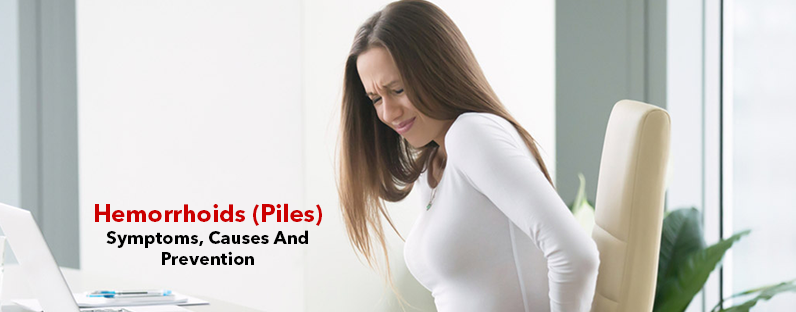Overview
Hemorrhoids are swollen veins in the anus and lower rectum, close to varicose veins, which are sometimes called piles. Hemorrhoids can grow within the rectum (inner hemorrhoids) or around the anus (external hemorrhoids) under the skin.
Close to three out of four adults will occasionally have hemorrhoids. Hemorrhoids have multiple causes but the cause is still unknown.
Fortunately, effective options are available to treat hemorrhoids. Many people are getting relief from home treatments and changes in lifestyles.
Symptoms
Internal Hemorrhoids
Inside your rectum, internal hemorrhoids are far enough that you normally can’t see or feel them. They usually don’t hurt because there are few pain-sensing nerves in there. Internal-hemorrhoid signs include:
- Blood on your poop, on toilet paper after wiping, or in the bowl
- Tissue which bulging outside of the anal opening (prolapse). This can hurt, often when you’re poop. Prolapsed hemorrhoids may be seen as moist bumps that are pinker than the surrounding area. These usually go on own inside. Even if they don’t, they may often be pushed gently back into place.
External Hemorrhoids
External hemorrhoids around your anus are under the skin, where many more pain-sensing nerves are present.
Symptoms of external hemorrhoids include:
- Pain
- Bleeding
- Itching
- Swelling
A blood clot can turn a purple or a blue hemorrhoid. This is called a thrombosis. It can hurt, itch, and bleed. You might have a bit of skin left over when the clot dissolves, which may get irritated.
When to see a doctor
Talk to your doctor if you have bleeding during bowel movements or if you have hemorrhoids that are not improving after a week of home care.
Do not assume that rectal bleeding is due to hemorrhoids, particularly if you have changes in bowel habits or if color or consistency of your stools changes. Other diseases may include rectal bleeding, including colorectal cancer, and anal cancer.
If you have large amounts of rectal bleeding, lightheadedness, dizziness or faintness, seek emergency care.
Causes
While the presence of hemorrhoids reflects normal anatomy, hemorrhoids are referred to as an abnormal finding by most people and care professionals, as they only occur when they swell and cause problems. Hemorrhoid swelling happens when the pressure in the small vessels that make up the hemorrhoid is increased, causing them to swell and fill with blood. This makes them grow in size leading to symptoms. Increased pressure may be caused by a variety of factors:
- Low-fiber diet and smaller calibre stool cause a person to strain when he has a bowel movement, increasing blood vessel pressure.
- Hemorrhoid swelling is associated with pregnancy and is likely due to increased pressure on the rectum and anus of the enlarged uterus. Additionally, with pregnancy, hormonal changes will weaken the muscles that protect the rectum and anus.
- Prolonged sitting in the toilet will increase pressure in blood vessels with hemorrhoids.
- Obesity
- Diarrhea, both acute and chronic
- Colon cancer
- Previous rectal surgery
- Spinal cord injury and lack of erect posture
What are the complications associated with hemorrhoids?
Complications from hemorrhoids are rare, but can include:
- Blood clots in the swollen vein
- Bleeding
- Iron-deficiency anaemia caused by blood loss
Prevention
The risk of developing hemorrhoids is reduced considerably if stools are kept soft. This can be helped in the following ways:
- Nutrition: eating plenty of fibre-rich foods, such as fruits and vegetables, as well as whole grains, means that stools are almost always soft. Likewise drinking plenty of fluids helps to keep soft stools. Constipation is also eased by OTC fiber supplements.
- Avoiding over-straining: Try not to strain while using the toilet. Which causes pressure in the lower rectum of the veins.
- Going to the toilet when needed: If they need to use the toilet people should not wait. The longer you wait the drier the stools become.
- Physical activity: Long periods of sitting or standing still puts pressure on the veins. Physical activity also helps the stubble to move through the intestine, making bowel movements more regular.
- Maintaining a healthy body weight: The risk of hemorrhoids is greatly increased by being overweight.
- Drink Enough Water: This is a simple and cheap hemorrhoid prevention strategy, yet so few of us actually do it. Along with eating a healthy diet full of fiber, the key to healthy bowel movements is adequate hydration from water. Having sufficient water helps prevent constipation and thus reduces pressure.

Leave a Reply
You must be logged in to post a comment.